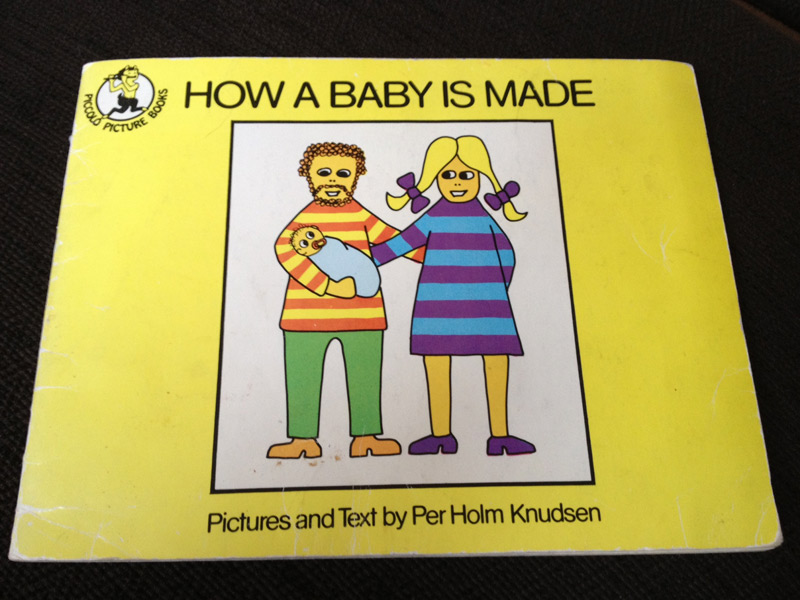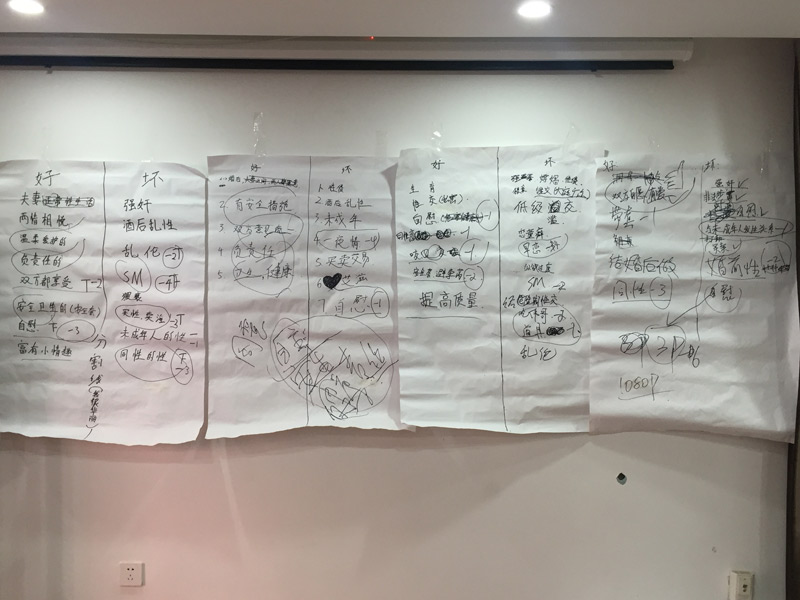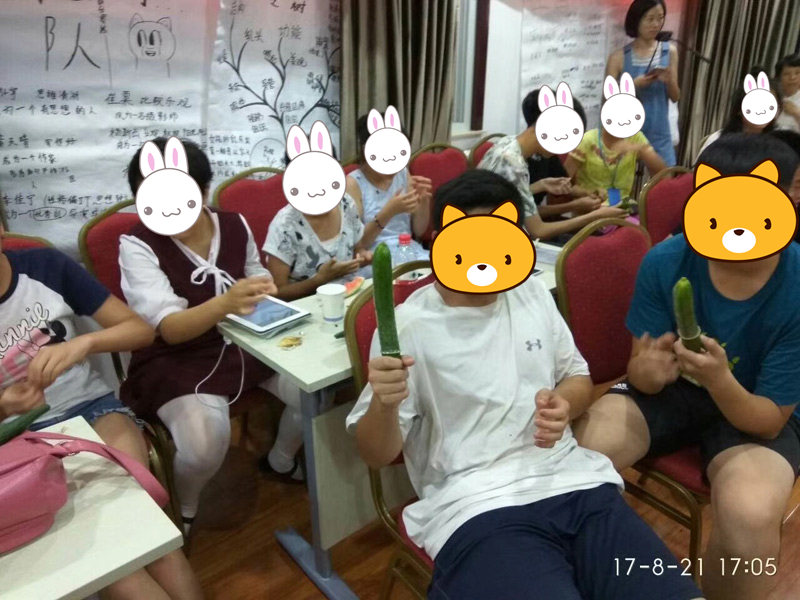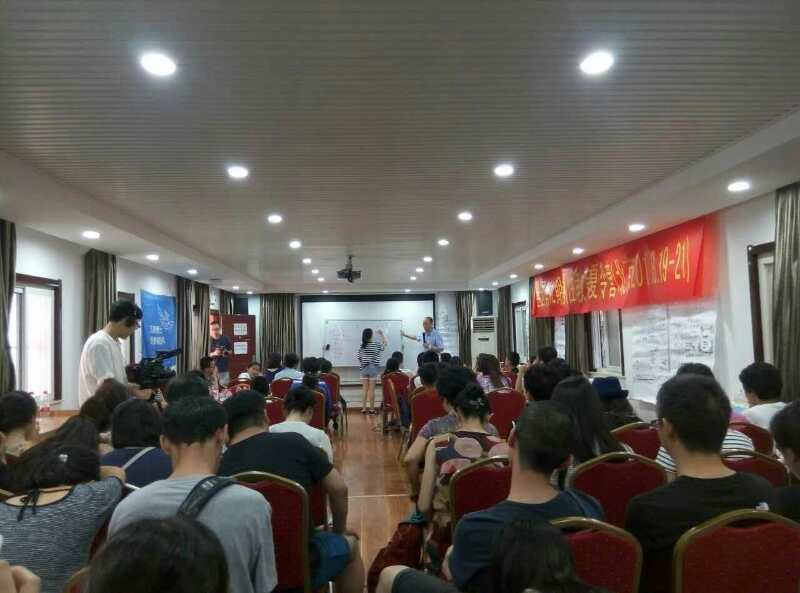

“What is good sex and bad sex?”
If such a question was raised to a group of underage students elsewhere, it would be easily treated as an alarming signal of a potential pedophilia. But at Chinese sexologist Fang Gang’s sex education camp, sex is not a taboo topic.

(File photo)
Innocent yet knowing
To let a child, especially a Chinese child, off his or her guard on sex-related topics is never an easy task. It is almost a mission impossible if the child is put right under the watch of parents sitting in the very same room.
Of the 29 children aged 11 to 17 who attended the first day of the latest summer camp in Beijing on August 19, only two raised their hands when they were asked if they knew the process of intercourse. Nor did anyone budge when the group was asked to raise their hands “if you do not know it.”
The child who could answer the question stopped at “being intimate together,” arguing that his father would “kill him” if he heard such talk.
Fang, the lecturer at and founder of the camp, and a renowned sexology professor from Beijing Forestry University, smiled at the awkward response and began openly explaining the “unspeakable” process through the exhibition of “How a Baby is Made” by Danish writer Per Holm Knudsen.

(File photo)
“Sexual organs are no different than any other parts of your body. There is no reason to avoid knowledge about our bodies and sexual functions,” Fang stressed.
Fang then chose a more obscure way to encourage his students to discuss the good sex-bad sex question, asking them to team up and write down their answers on a large sheet of paper.
The results stunned many parents and visitors.
The seemingly-not-knowing-sex-at-all children turned out to know a lot. Apart from understanding such things as one-night stand, masturbation, and oral sex, which saw divided opinions in terms of their good or bad qualities, other words, such as sadomasochism, threesome, sex toys, and Viagra were also on the paper posted in the front of the room.

(Students' answers on the good-bad sex question are posted in the front of the room. Photo by Jiang Jie/People's Daily Online)
Parents further dropped their jaws when the students gave presentations on vagina and breasts with self-drawn illustrations, and when Fang openly lectured on masturbation, tampons, and condoms. What’s more, all students, including some 11-year-old girls, were asked to put a condom on a cucumber in class, while all female students were asked to look at their vagina in the mirror as homework.

(Photo/Courtesy of Fang Gang)
Specifically, more than half raised their hands to show they had tried masturbation, while one-third admitted that they have watched pornographic films, “including several girls, which was a very good sign,” Fang said.
More than knowledge-sharing
Fang’s education camp was first launched in 2013 in Huainan City, eastern China’s Anhui province. The camp that ended on August 21 in Beijing was the largest ever.
“Children always know way more than what parents think they know about sex. This has always been the case ever since we started the camp four years ago,” Fang told People’s Daily Online. “We also consult the parents beforehand on certain sensitive topics, including masturbation. Most parents follow along, but very few give their consent in the end.”
When approached by People’s Daily Online, several parents said they felt Fang’s course was acceptable and helpful and that they willingly spent over 3,000 yuan on the three-day camp to help their children with their sex education and become more responsible in life.

(Parents sit behind the students at the summer camp in Beijing. Photo/Courtesy of Fang Gang)
On the one hand, there is the part of Chinese culture that makes sex taboo, which gives many parents a false idea, Fang said. “Many parents were shocked about tampons, let alone more shocking topics like gender equity.”
A mother of a teenage girl revealed her concerns over LGBT-related topics before the class began. “As an art student, she has contact with and shown interest in homosexuality. Could you address this topic during the camp?” asked the concerned mother.
While being interviewed with People’s Daily Online, the unnamed mother insisted that she wants her daughter receive “correct” education, and that she is not opposed to LGBT. The mother’s concerns could still be clearly felt throughout the program.
The mother’s teenage daughter was one of the staunchest supporters of LGBT rights in a heated debate on the first day of the camp, which saw a 23-6 support rate.
“Judging from my questionnaire at the camp, most parents felt it necessary to sign their children up because their children are about to or have already become adolescents. Some said their children were already in a relationship or have watched porn. Deep down inside, many of the parents do not want to help their children learn about the birds and bees. They simply want their children to focus on their studies,” camp visitor Yan Tingzhen, also a postgraduate student at the Sichuan-based China West Normal University, told People's Daily Online.
While all parents carry good wishes, not all come home with the “correct” idea of sex and of life. Yan recalled a parent at a sex education camp in Hangzhou, Zhejiang province, who blatantly read out her child’s school grades in front of the whole camp, as an example of how relationships could affect one’s study. The sudden outburst, ironically, came on the very last day of the camp, when the students were debating over puppy love and its impact on school grades.
Veil over sex education
“We offer more than just sex education. We teach students how to grow up. We want to teach them how to think independently. We train them to respect one another, always develop their own qualities, and never give up on their dreams,” Fang told People’s Daily Online.
According to Fang, “real” sex education is like looking for a needle in a haystack. Less than one percent of Chinese schools offer sex education, but almost none “dare” take it seriously. Most lessons still stress gender traits and ban love from blooming on campus.
“That is not sex education in my eyes. That is sex submission,” he noted. “It all shows how hard it is for Chinese society to open up to varied cultures and especially to juvenile rights.”
Luckily, students on the camps are like sparks of fire. Yan remembered a teenage boy who said he wanted to help spread what he learned from the camp. “It’s encouraging to see children’s mindsets are not rigidly traditional. I think we can expect to see a more inclusive society in the future when they grow up. One that shows more respect to minority groups and focuses more on individual rights, rather than the majority.”

 Award-winning photos show poverty reduction achievements in NE China's Jilin province
Award-winning photos show poverty reduction achievements in NE China's Jilin province People dance to greet advent of New Year in Ameiqituo Town, Guizhou
People dance to greet advent of New Year in Ameiqituo Town, Guizhou Fire brigade in Shanghai holds group wedding
Fire brigade in Shanghai holds group wedding Tourists enjoy ice sculptures in Datan Town, north China
Tourists enjoy ice sculptures in Datan Town, north China Sunset scenery of Dayan Pagoda in Xi'an
Sunset scenery of Dayan Pagoda in Xi'an Tourists have fun at scenic spot in Nanlong Town, NW China
Tourists have fun at scenic spot in Nanlong Town, NW China Harbin attracts tourists by making best use of ice in winter
Harbin attracts tourists by making best use of ice in winter In pics: FIS Alpine Ski Women's World Cup Slalom
In pics: FIS Alpine Ski Women's World Cup Slalom Black-necked cranes rest at reservoir in Lhunzhub County, Lhasa
Black-necked cranes rest at reservoir in Lhunzhub County, Lhasa China's FAST telescope will be available to foreign scientists in April
China's FAST telescope will be available to foreign scientists in April